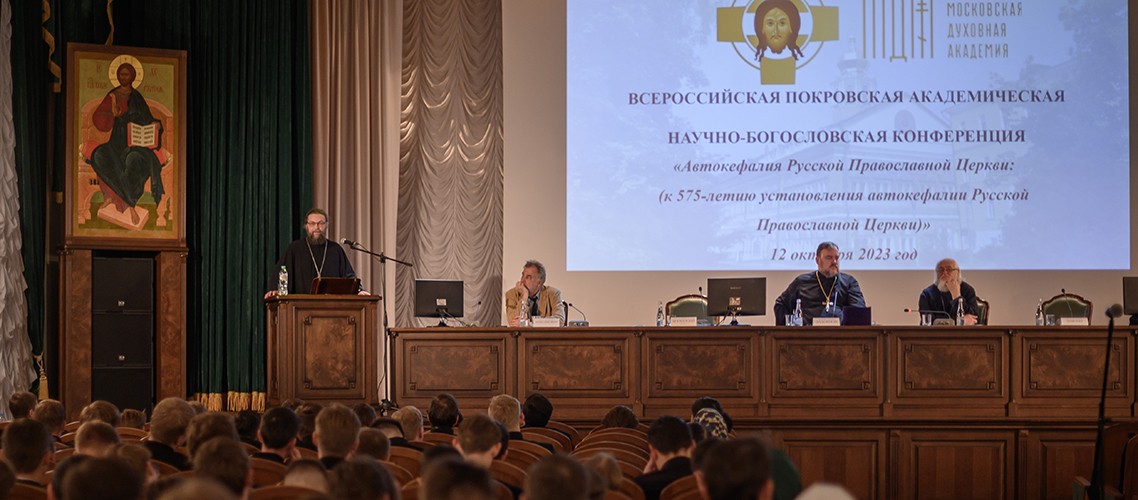
The Academy hosted an annual scientific conference
On October 12, 2023, the All-Russian Intercession Academic Scientific and Theological Conference took place at the Moscow Theological Academy.
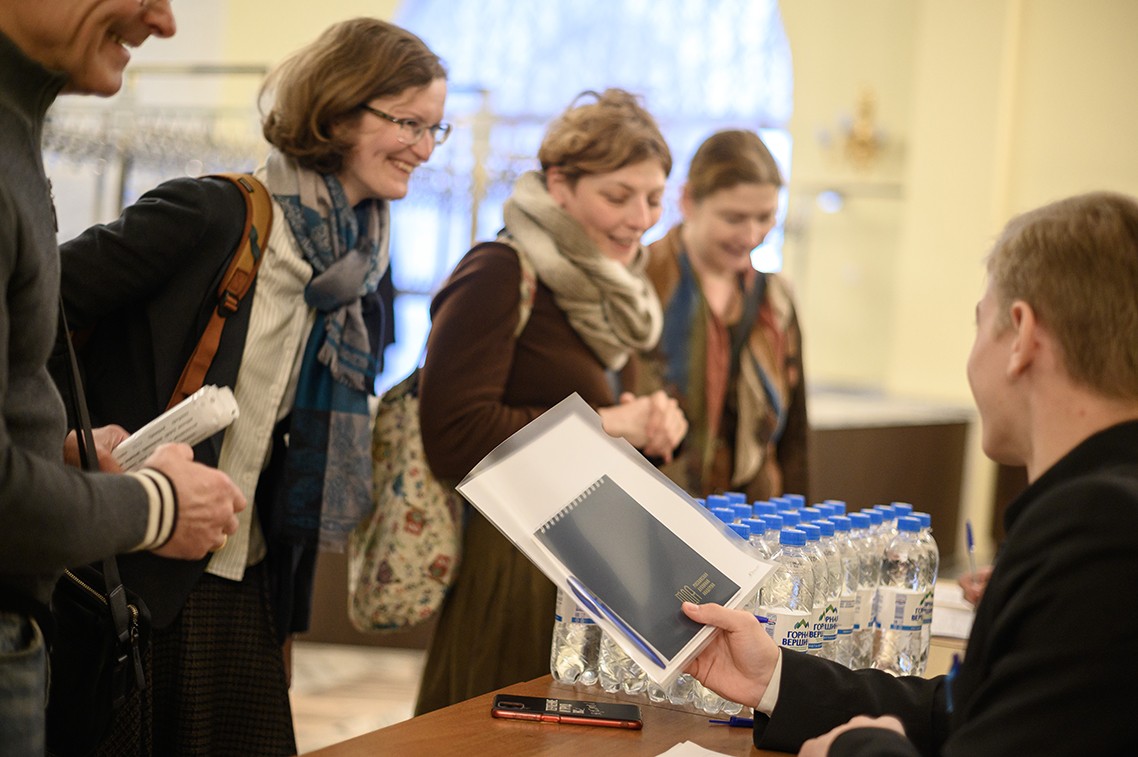
Archpriest Alexander Zadornov, Vice-rector for scientific and theological work of the Moscow Theological Academy, moderated the plenary session, which was dedicated to the 575th anniversary of the establishment of autocephaly of the Autocephaly of the Russian Orthodox Church.
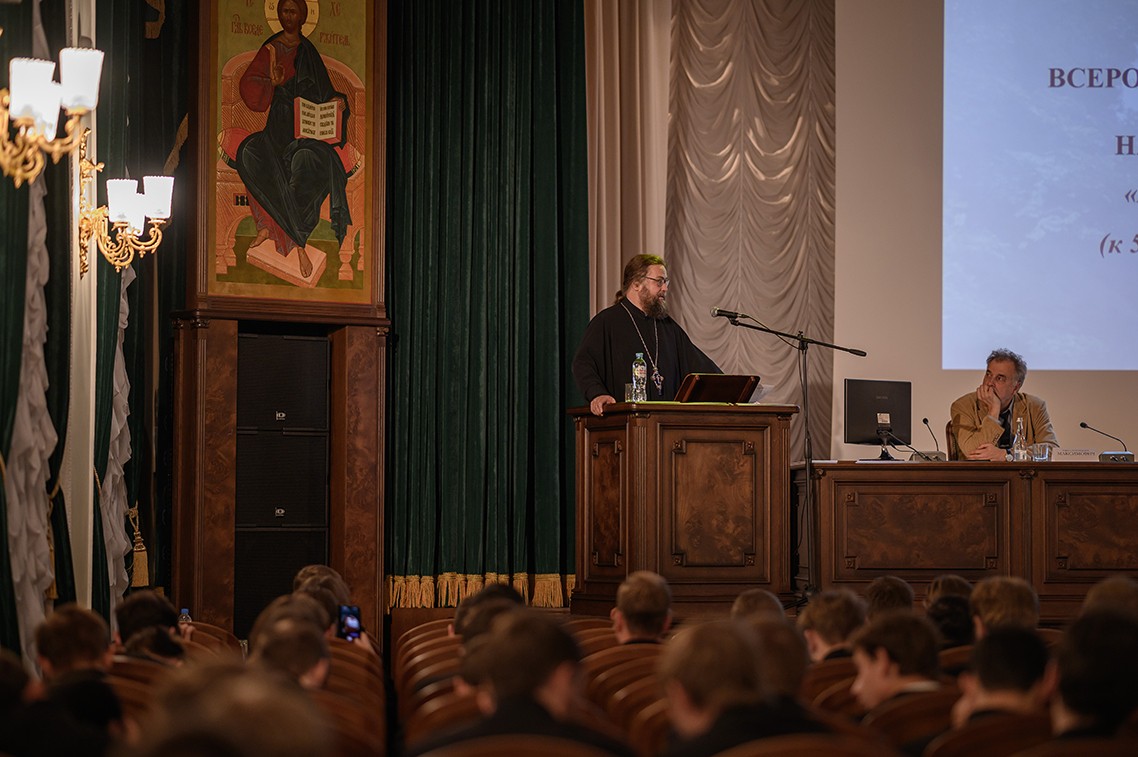
During the meeting, academic professors gave their reports. They were Archpriest Vladislav Tsypin “The Establishment of Autocephaly: The Canonical Aspect” and Hegumen Dionysius (Shlenov) “The “Mother Church” in the Byzantine Tradition.”
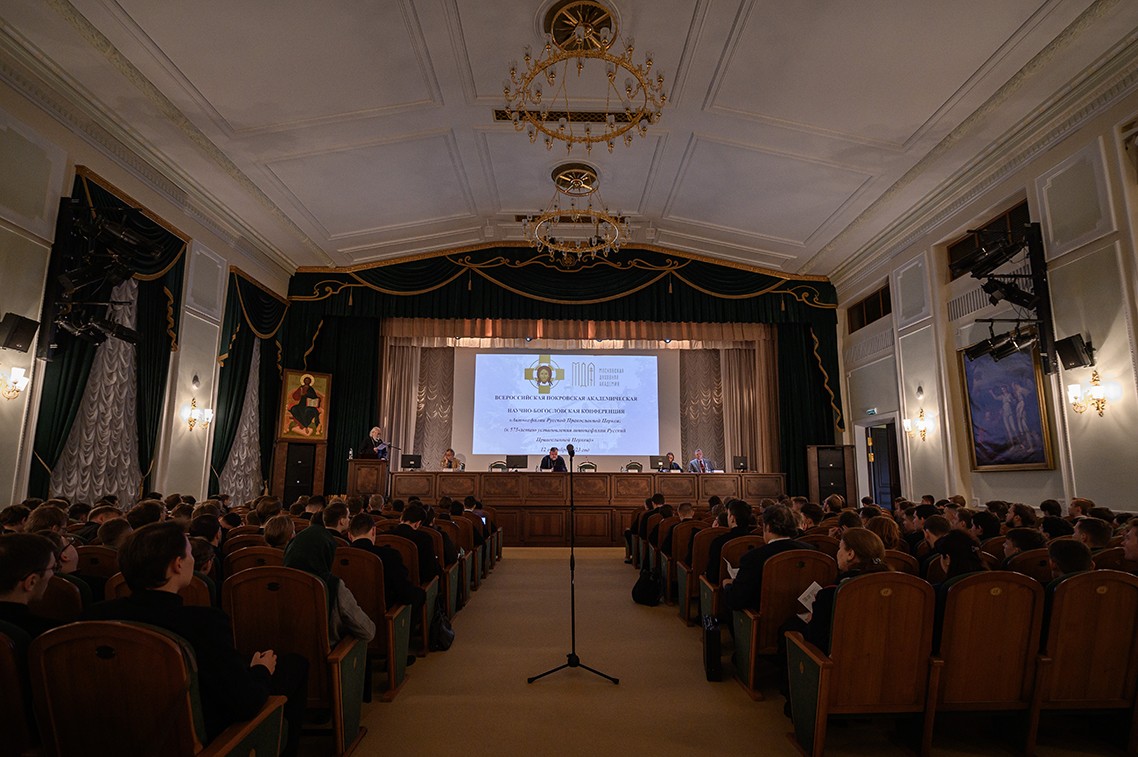
Separate aspects of the anniversary topic were touched in the reports given by employees of the Laboratory for Church Institution Research at the Orthodox St. Tikhon’s Humanitarian University (PSTGU), PhD in Historical Sciences, Priest Pavel Ermilov, “The Theme of Autocephaly of the Russian Church in the History of the Establishment of the Russian Patriarchate”, PhD in Historical Sciences, Mikhail V. Gratsiansky, “Social structures of the synodal type in antiquity: on the question of the origin Institute of Church Councils" and Dr. of Philology Kirill Al. Maksimovich "Issues of church primacy in the era of St. Patriarch Photius: terminology of church authority in the canons of the “Anti-Photius” Council of 869-870.”
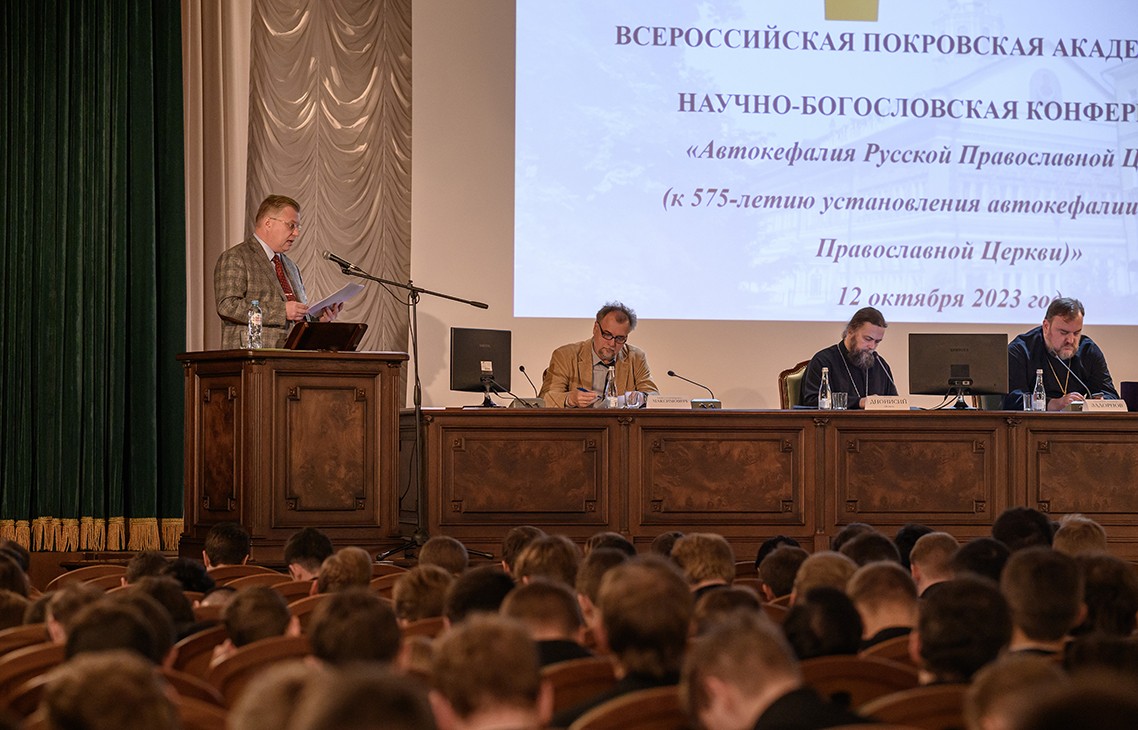
After lunch break, the conference continued in ten sections. Two of them were dedicated to theological issues and presenter the following reports:
- “The legacy of St. Martyr Cyprian of Korthagen in theological discussions of the diaspora” - Archpriest Pavel Khondzinsky, Dr. of Theology, PhD in Theology, Associate Professor, Dean of the Theological Faculty (PSTGU);
- “The problem of freedom of conscience in Russian journalism at the turn of the XIX-XX centuries.” — Priest Stefan Domuschi, PhD in Theology, Associate Professor of the Department of Theology at the Moscow Theological Academy;
- “Does God Know the Future?” — Archpriest Oleg Mumrikov, PhD in Theology, Associate Professor, Head of the Biblical Studies Department at the Moscow Theological Academy, Associate Professor of the Department of Pedagogy at the Faculty of History and Philology (PSTGU), Associate Professor of the Kolomna Theological Seminary;
- “Does man have free will? A look from the point of view of modern science" - Viktor Petrovich Lega, PhD in Theology, Associate Professor of the Department of Philosophy and Religious Studies (PSTGU), Associate Professor at the Moscow Institute of Physics and Technology, Associate Professor at the Moscow State Linguistic University, Associate Professor at the Sretenskaya Theological Academy, Associate Professor at the Moscow Theological Academy;
- “Reception of the ideas of Metropolitan Anthony (Khrapovitsky) in Russian Theology of the XX century.” — Nikolai Nikolaevich Pavlyuchenkov, PhD in Theology, PhD in Philosophical Sciences, Associate Professor (PSTGU);
- “The word ἄτομον (individual) in Orthodox Theology in the IV–VIII and XX–XXI centuries.” — Sergey Anatolyevich Chursanov, PhD in Theology, PhD in Philosophical Sciences, Associate Professor, Associate Professor of the Department of Systematic Theology and Patrolology (PSTGU);
- “Freedom and necessity in the political theology of D. Dzhalto” - Alexander Aleksandrovich Solonchenko, PhD in Theology, a senior lecturer (MThA);
- “The “new theology” of Catholicism and the “Parisian school” of Orthodox Theology: points of contact and aspects of discussion” - Priest Alexander Ermolin, Master’s of Theology, a senior lecturer at the Department of Theology and Philosophy at the Kazan Orthodox Theological Seminary;
- “Theological understanding of the phenomenon of blessing in intra-church hierarchical service” - Hieromonk Feofan (Pozhidaev), a senior lecturer at the Saransk Theological Seminary, a graduate student (General Orthodox Postgraduate and Doctoral Studies);
- “The doctrine of the universal priesthood as a prerequisite for the decision on the ordination of women in Anglicanism” - Priest Artemy Kokosh, Master’s of Theology, a lecturer at the Nikolo-Ugresh Theological Seminary, a graduate student at the Sretenskaya Theological Academy;
- “Understanding the Sermon on the Mount in the book “Walking After” Dietrich Bonhoeffer” - Yulia Aleksandrovna Shtonda, PhD in Philological sciences, a senior lecturer at the St. Philaret’s Institute;
- “The category of phenomenal and noumenal in the works of Kant, Schopenhauer and Berdyaev” - Hieromonk Alexander (Bogdan), a MThA undergraduate applicant.
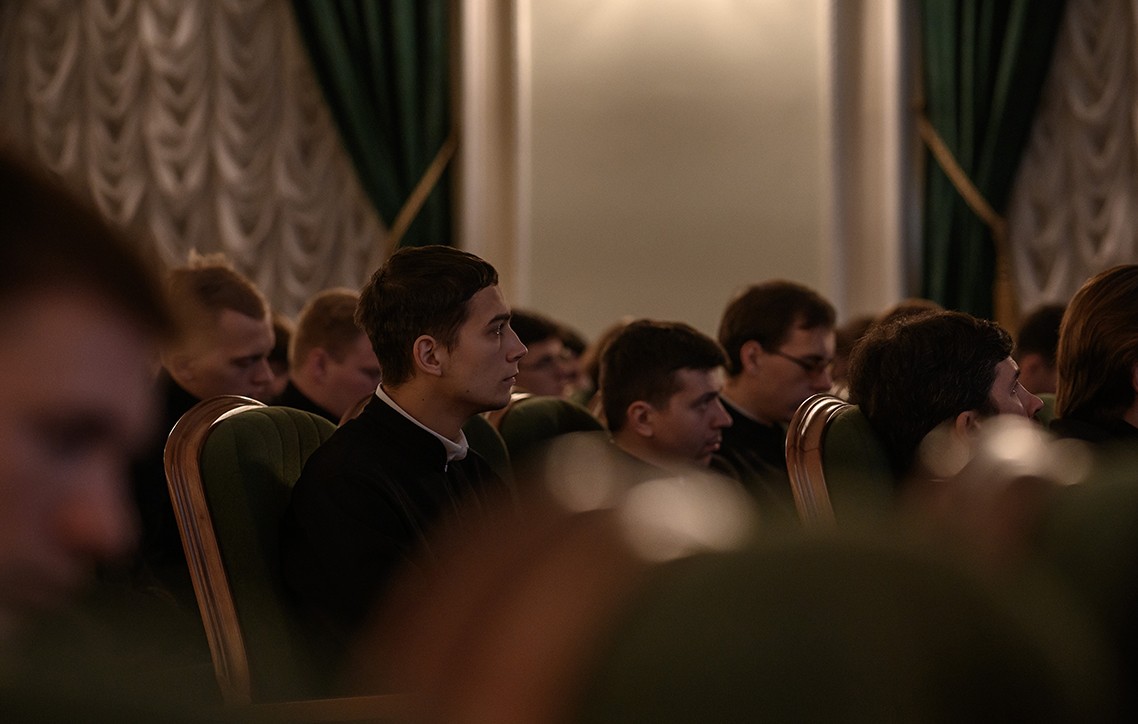
The Patrology section touched on a variety of issues such as an attribution of texts, the subtleties of theological terminology, connections between Eastern and Western traditions, local features of the veneration of saints, the uniqueness of the ecclesiological and Christological aspects of the heritage of the Fathers of Church. The chronological framework were broaden from II - XIX centuries. Both experienced researchers and young scientists showed an extremely attentive attitude to the text as a source of studying a Christian tradition.
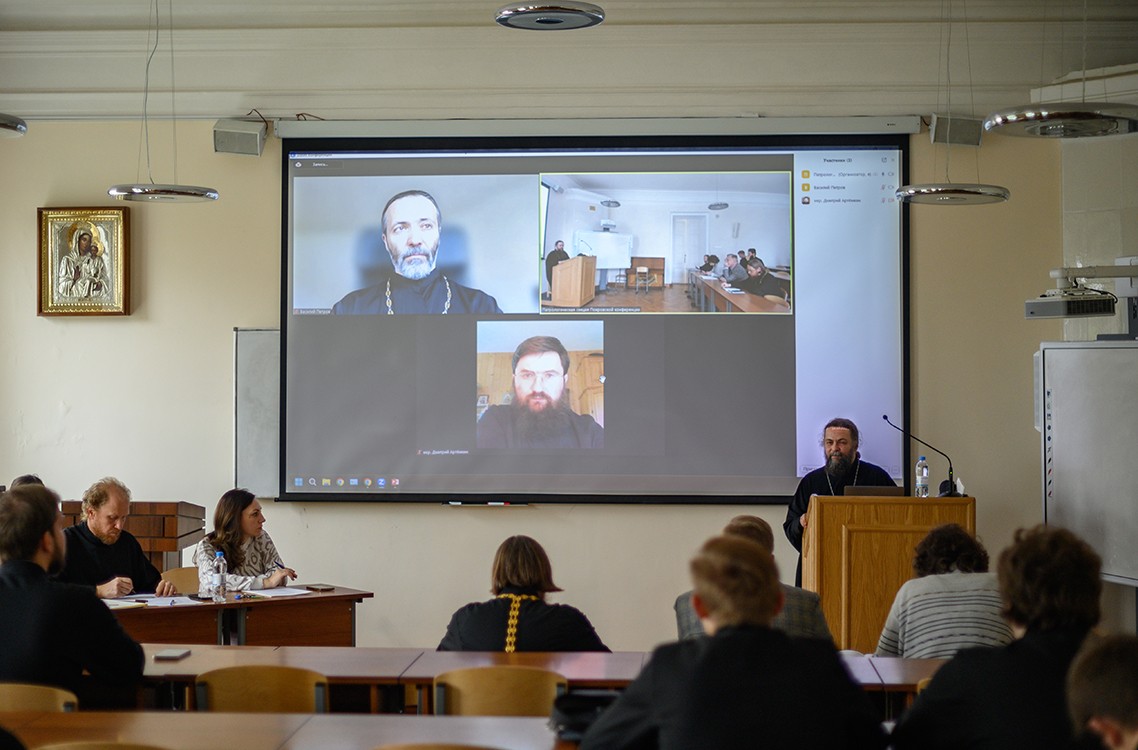
At the Exegesis and Hermeneutics of the Holy Scriptures section there were seven reports, which presented various aspects of Orthodox biblical studies. They connected to biblical archeology, issues of dogmatic exegesis, interpretation of difficult passages from the epistles of St. Apostle Paul, literary reception of the first letter of St. Apostle Paul to the Corinthians, the topic of the genealogy of the Lord Jesus Christ, issues of biblical hermeneutics and a question of interpreting Scripture in the Jewish tradition. The reports were up to high scientific standards and aroused lively discussions.
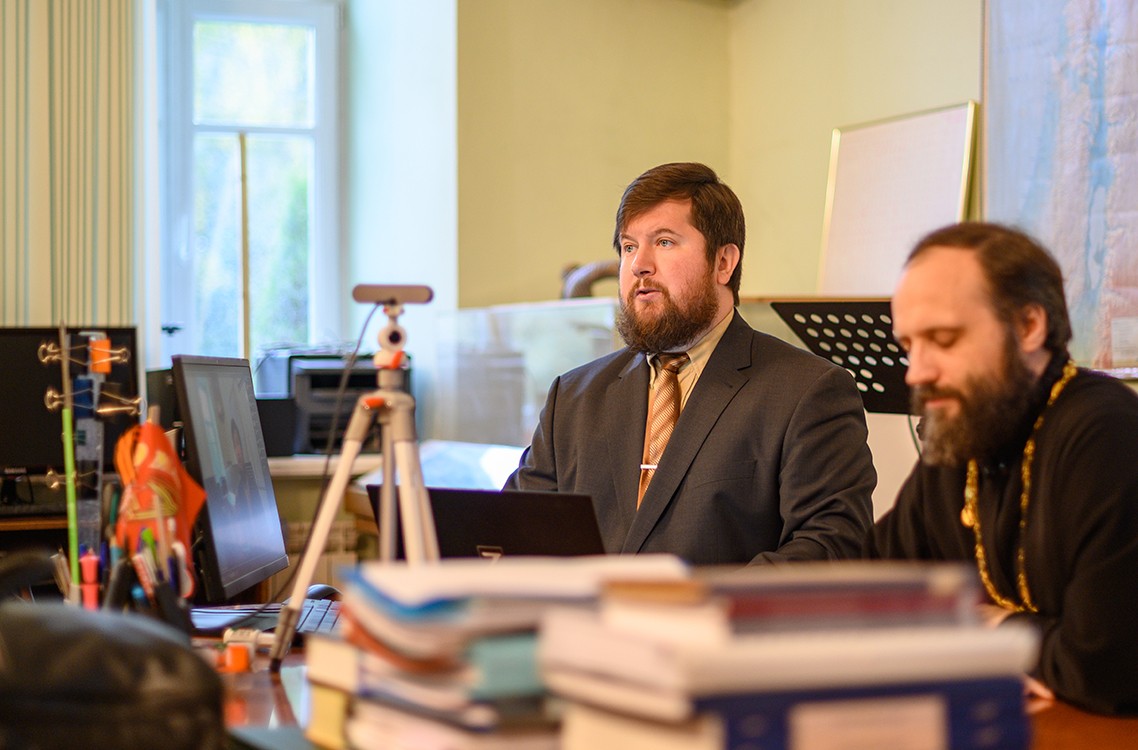
In three sections on Church History, there were thirty reports presented by both teachers and students of the Moscow Theological Academy, the Sretenskaya Theological Academy and the Orthodox St. Tikhon's Humanitarian University. They aroused keen interest from the audience and were accompanied by a lively discussion.
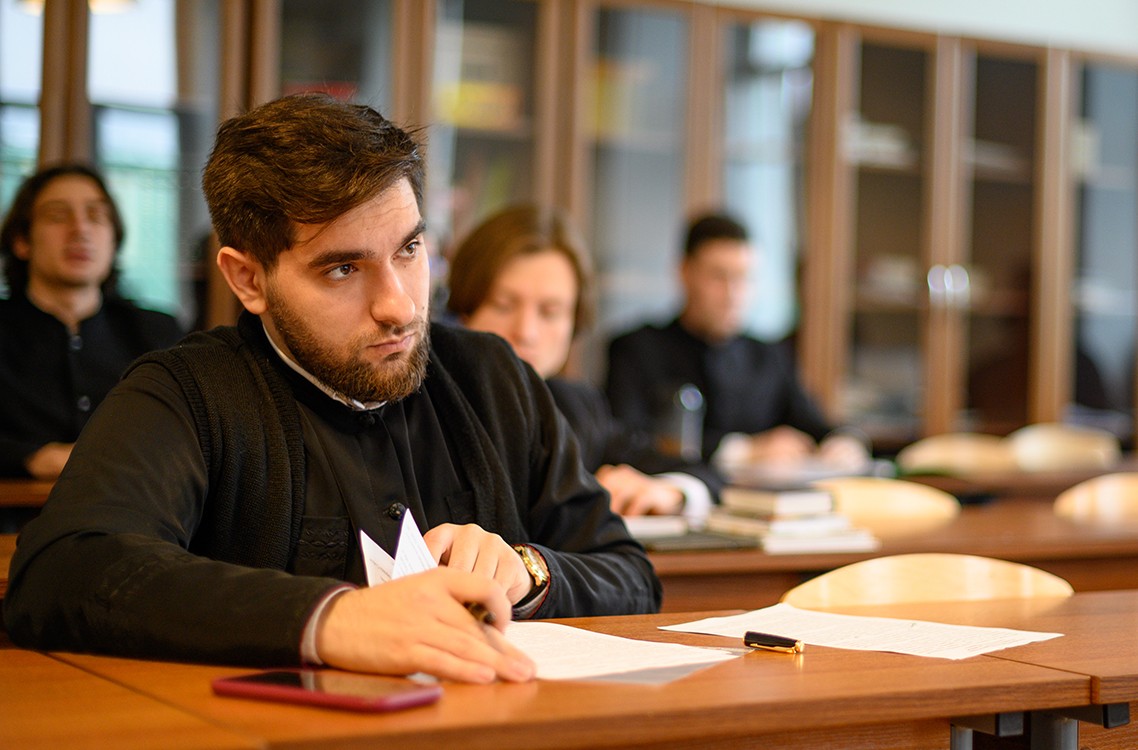
Thus, Professor Natalya Yurievna Sukhova, Dr. of Church History, Dr. of Historical Sciences, gave a report on «Discussions about the criteria of holiness and the order of glorifying saints at the Holy Council of the Orthodox Russian Church in 1917–1918».
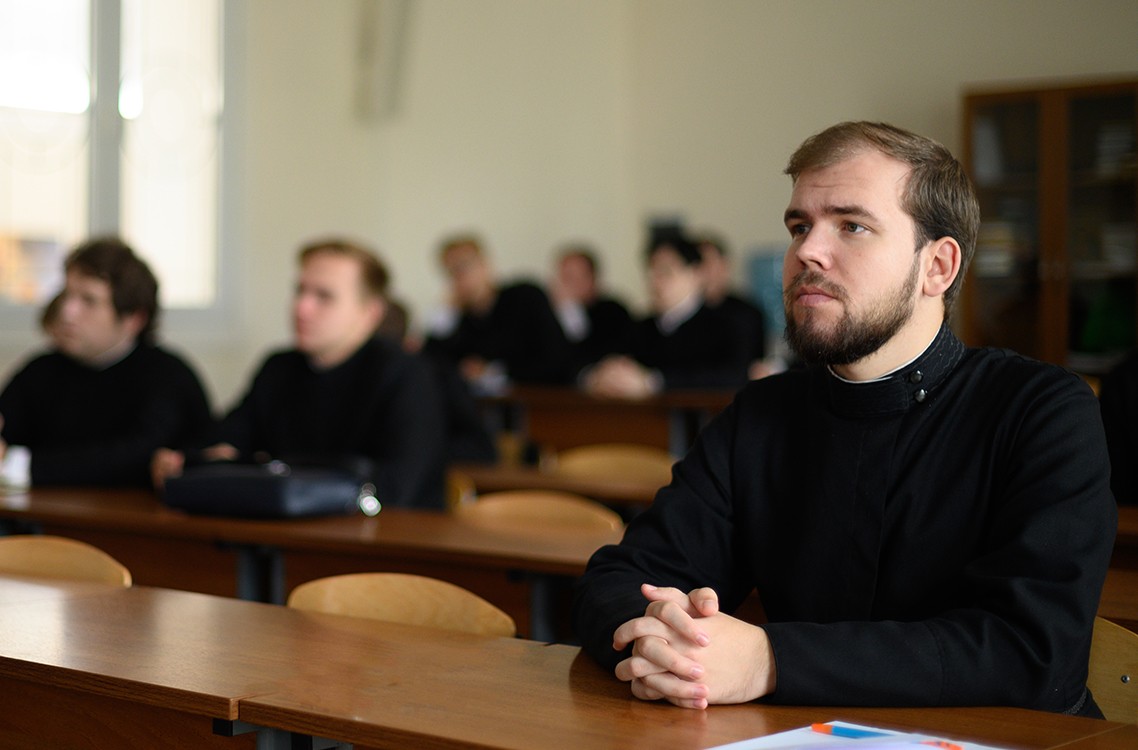
In his speech, A. G. Ziotakis, PhD in Historical Sciences, Associate Professor of the MThA Department of Church History, examined the missionary practice of the Greek Church noting both positive and negative aspects.
Archpriest Georgy Klimov, Associate Professor of the MThA Department of Biblical Studies, Associate Professor of the Department of Theological Disciplines of the St. Petersburg Theological Academy, gave a report on «The Gennadiev Bible (1499): Features of the History of the Edition» presenting weak and strong aspects of the translation of the Holy Scriptures in the XV century.
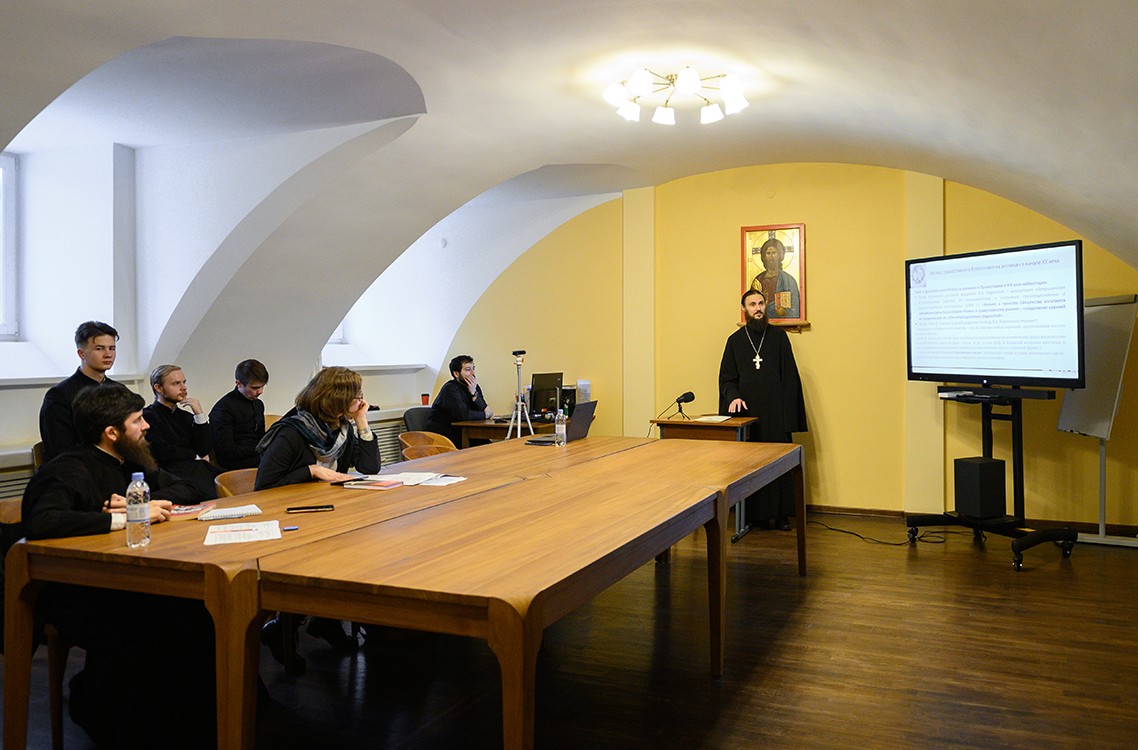
The Christian Writing section there were the following reports:
- Comprehension of life and death in the artistic world of I.S. Shmelev (based on the novel “The Summer of the Lord”) - Deacon Dionisy Makarov, Dr. of Cultural Studies, PhD in Philological Sciences, Deputy Head of Postgraduate Studies, Professor of the MThA Department of Philology;
- Religionim-substantives in -nik in the church-religious style of the XVIII century. (based on lexicographic works) - Sergey Vladimirovich Feliksov, PhD in Philological sciences, Head of the Philology Department at the Pererva Theological Seminary, Associate Professor of the Department of Pedagogy at the Historical and Philological faculty (PSTGU);
- «Do your life’s work in Russia quickly!»: letters from Equal-to-the-Apostles Nicholas of Japan to teacher S.A. Rachinsky from the collections of the Russian National Library" - Irina Vladimirovna Kuzmina, a researcher, a senior teacher at the Nikolo-Ugreshs Theological Seminary;
- “The Book of Proverbs of Solomon as part of the Vilna Old Testament corpus (F 19-262)” - Priest Kirill Prikhotko, an assistant at the MThA Department of Philology;
- “Apocalyptic motifs in the works of I.S. Shmelev" - Priest Evgeniy Dynich, Master’s of Theology, a MThA graduate student;
- "The Life of St. Martyrs Aciscus and Victoria of Corduvia: the value of hagiographic literature in the context of missionary service" - Deacon Dionisy Kuprichenkov, Master's student at the Belgorod Orthodox Theological Seminary.
At the Church Art section there were ten reports made by professors of the MThA Department of History and Theory of Church Art I.N. Slyunkova and V.V. Igoshev. Several reports were dedicated to a research on the iconostasis of the Trinity Cathedral of the Hole Trinity St. Sergius Lavra and books from the collection of the MThA library. Anastasia Kosivets, a Master’s student, gave a report on the iconography of St. myrrh-bearing women.
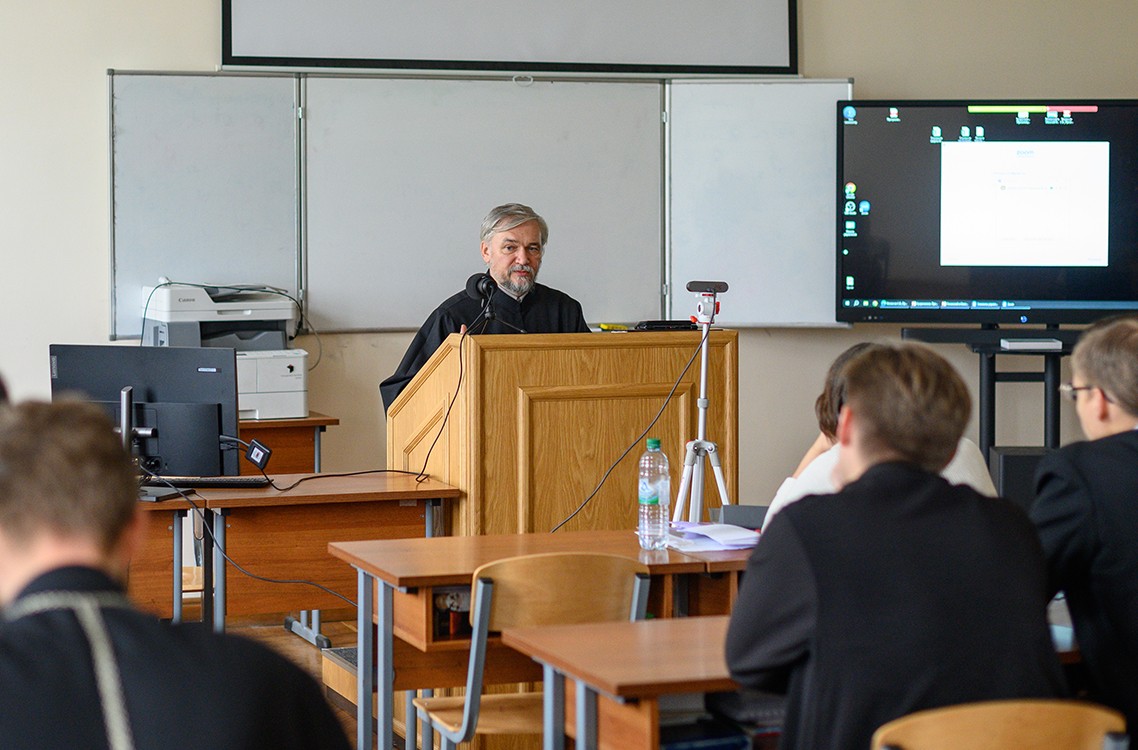
Six reports were given at the Liturgics section. Most of them were dedicated to specific liturgical monuments or rites:
- “The first akathist to St. Sergius and its author” - Evgeniy Grigorievich Malyuta, Master’s of Theology, a MThA lecturer;
- “Following to Holy Communion according to Serbian sources of the XIII-XV centuries.” — Konstantin Nikolaevich Malakaev, a teacher and a graduate student of the MThA Department of Philology, a methodologist of the MThA profile “Pastorology and Liturgics”;
- “Trends in the use of baptismal elements in the funeral rites of the Serbian and Russian Orthodox churches in XV century.” — Nadezhda Leonidovna Mikhailovskaya, a second year Master’s student at St. Philaret’s Institute, a lawyer;
- “Historical development of the opening psalmody of the evening service: from initial to pre-initial” - Fyodor Kirillovich Khvostunkov, a student of the Master’s preparatory program;
- “Prayers before the Vespers and before the Matins of the Old Russian Book of Hours” - Hieromonk Dalmat (Yudin), Head of the “Pastorology and Liturgics” profile, Associate Professor of the MThA Department of Philology;
- “Teaching activity of I.A. Karabinova in SPbDA (1906–1918): searches and approaches to teaching liturgics” - Zoya Mikhailovna Dashevskaya, a senior lecturer at St. Philaret’s Institute.
Topics on the history of worship aroused keen interest and questions from the audience. Questions of the origin and variability of the Communion sequence, the history of the Slavic «Trebnik», additional prayers of the Old Russian Book of Hours aroused a lively discussion.
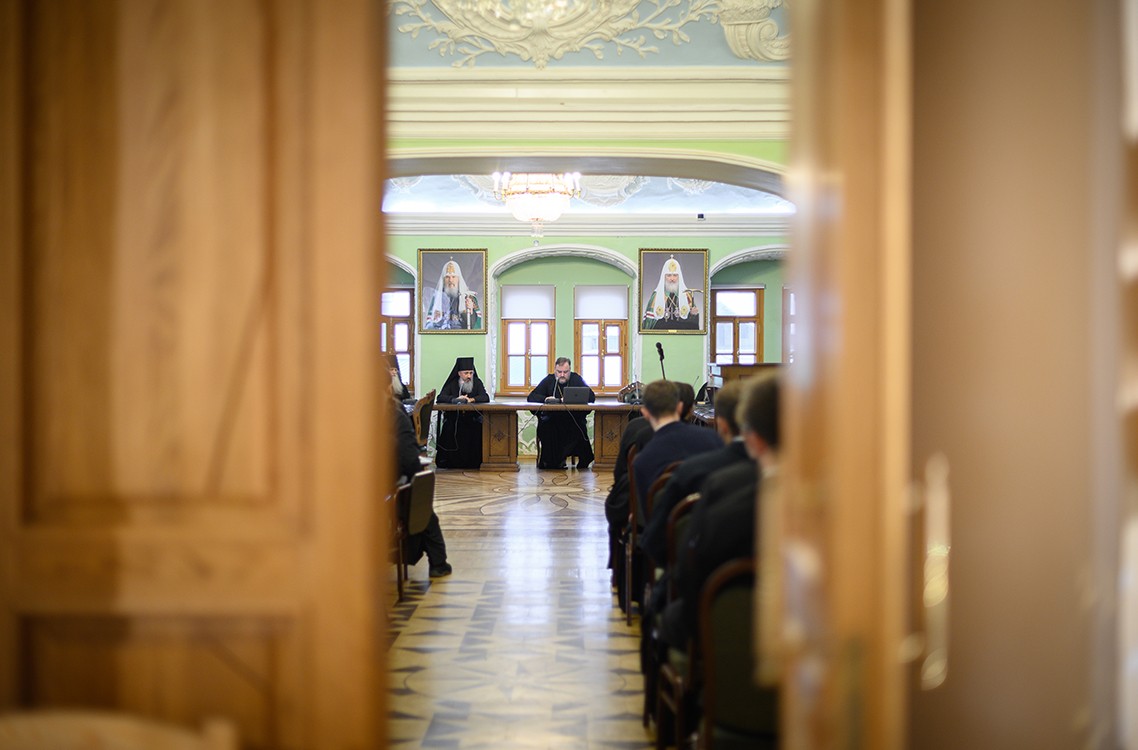
A round table “The practice of applying penance to the laity in the Russian Orthodox Church” was held in the Elizabeth Hall of the Academy. This is the second round table on the topic organized within the framework of the annual Intercession Conference together with the Commission on Church Law of the Inter-Council Presence. Members of the Commission on Church Law, who took part in the discussion, were an adviser to His Holiness the Patriarch of Moscow and All Rus' Archpriest Nikolai Balashov, Archpriest John Mirolyubov, a member of the Synod of the Estonian Orthodox Church S.G. Myannik, a confessor of the Holy Trinity St. Sergius Lavra Archimandrite Zacharias (Shkurikhin), Rector of the Varnitsa Trinity-Sergius Monastery, Archimandrite Varnava (Fedorov) and Archimandrite Basilisk (Gorbul), clergy of the Ryazan Metropolitan, teachers and students of the MDA. The moderator was Associate Professor Archpriest Alexander Zadornov, Vice-Rector for Scientific and Theological Work of the Moscow Theological Academy, Secretary of the Commission on Church Law of the Inter-Council Presence.
The following topics were brought up for the discussion:
- Problems of penance practice.
- Penance as a punishment and as a treatment for sin.
- The rights of a confessor when imposing penance and its resolution.
The following discussion demonstrated the relevance of the round table topic, the difference in the application of canonical and ecclesiastical legal acts regarding penance practice, and the need to continue studying this topic in the future.
MThA Press Office
